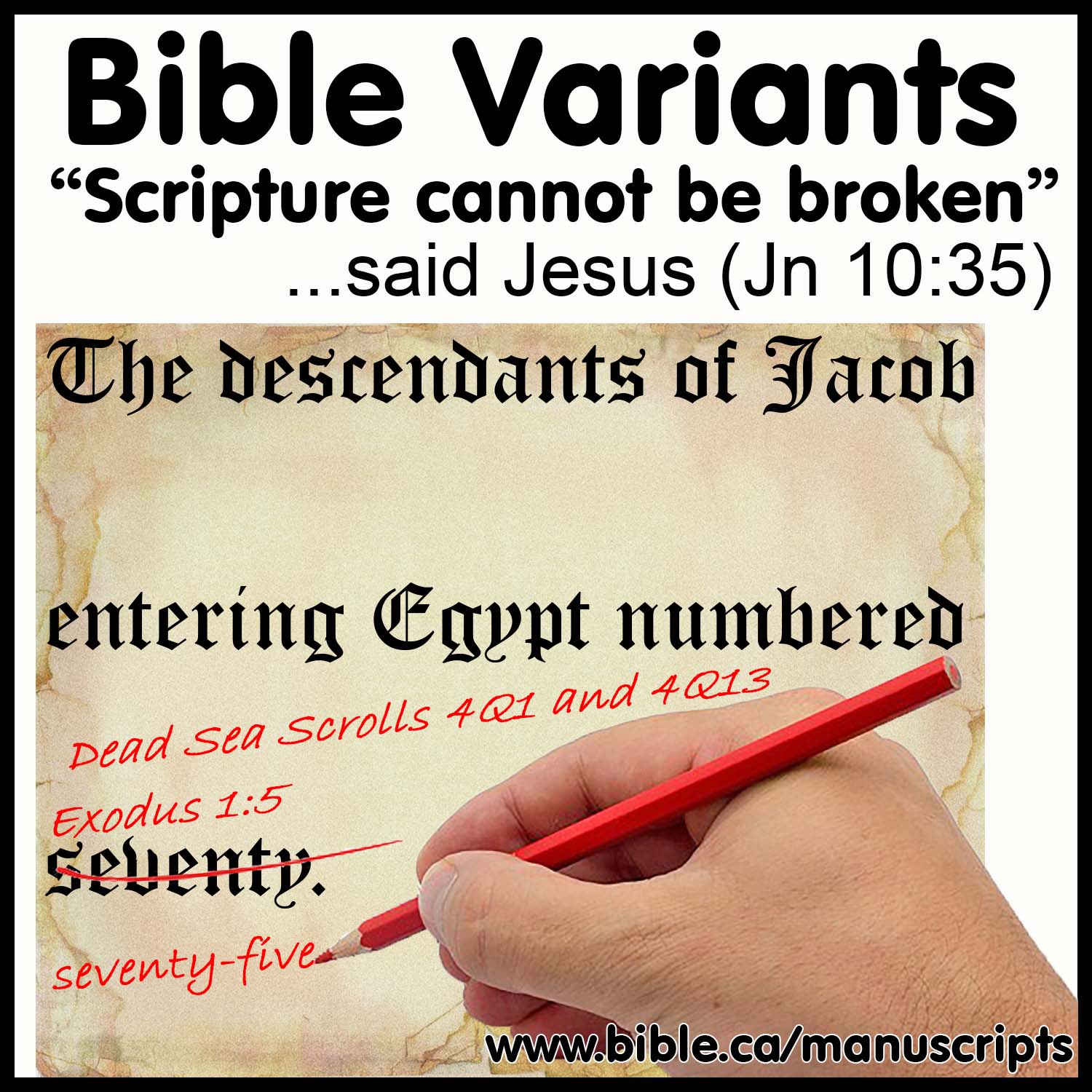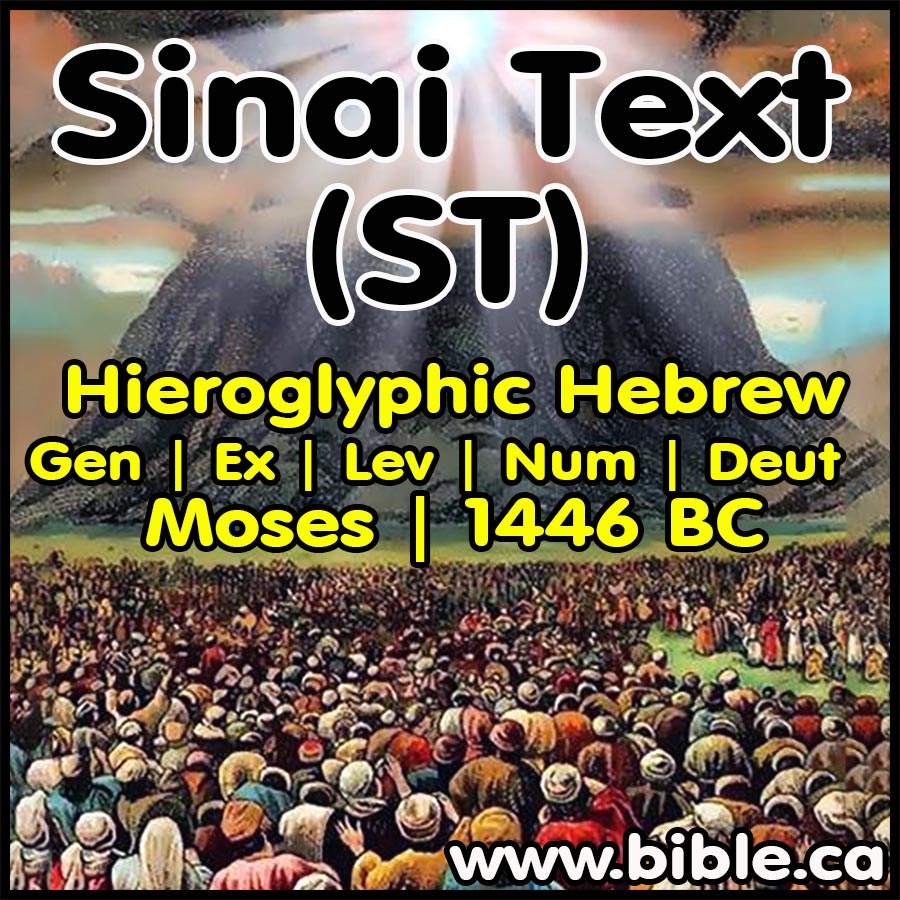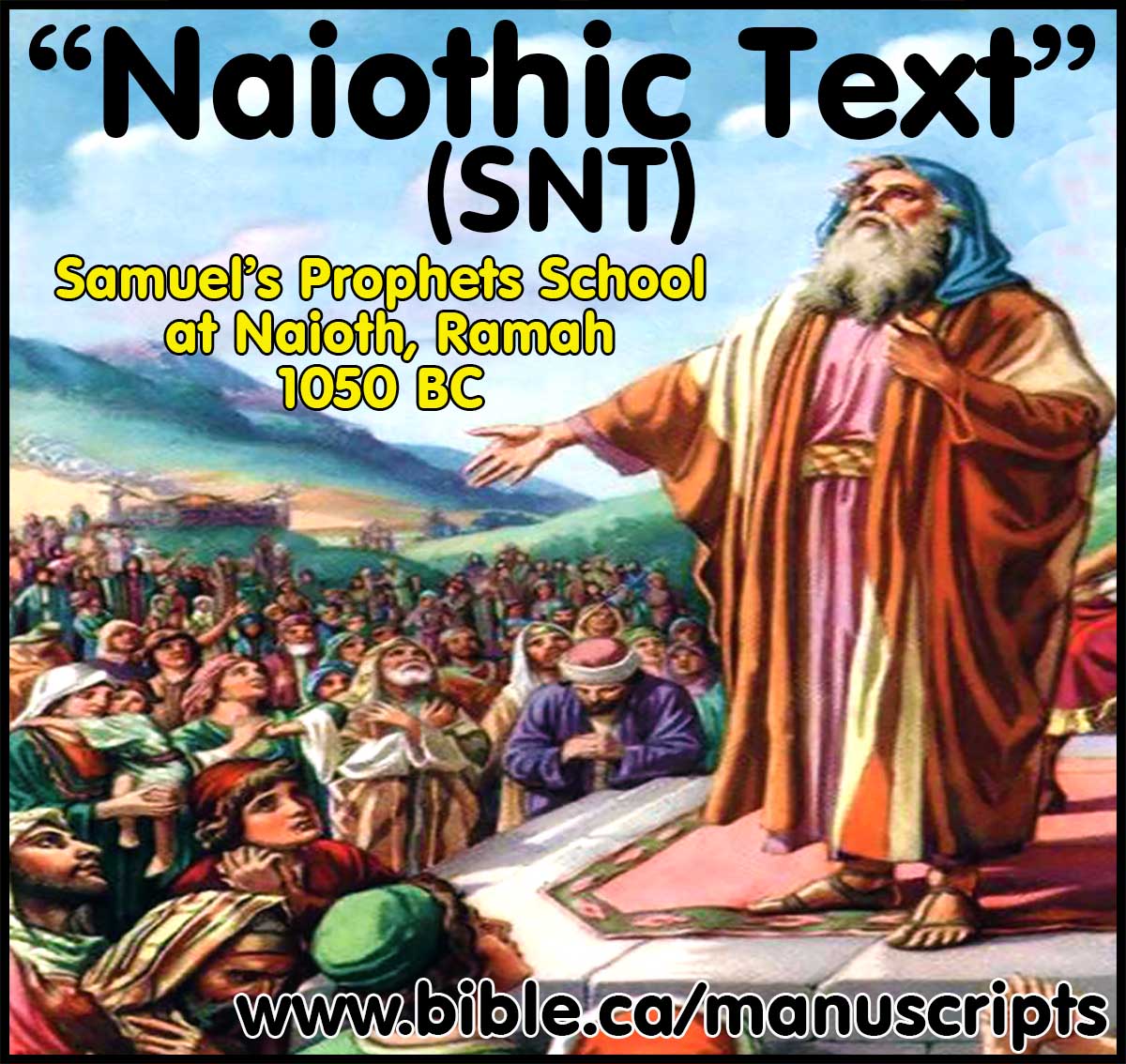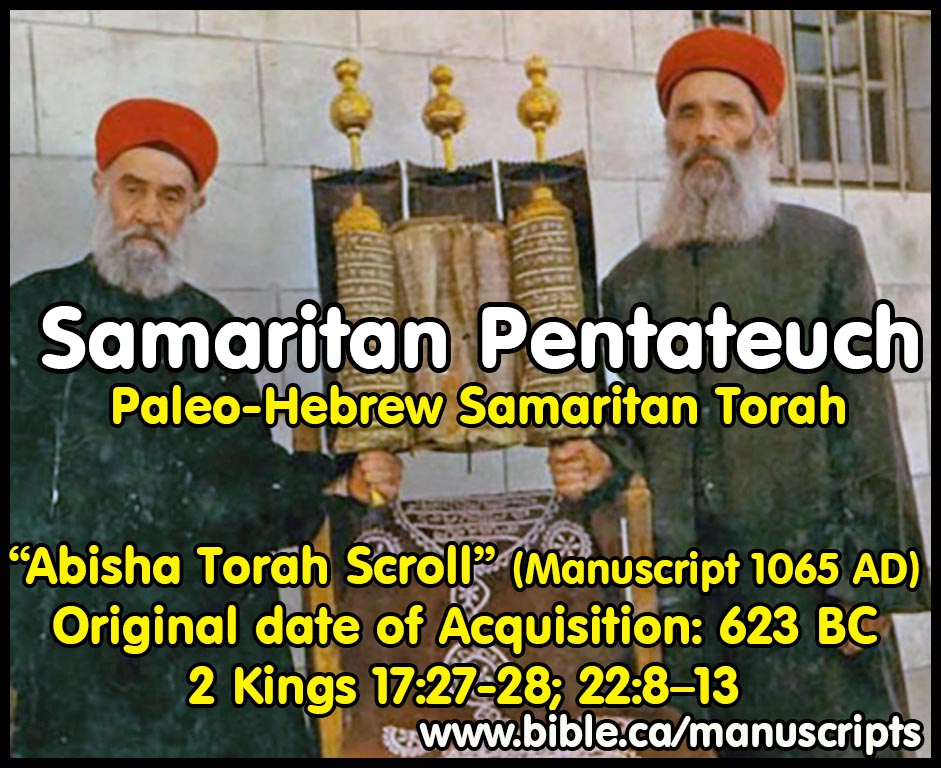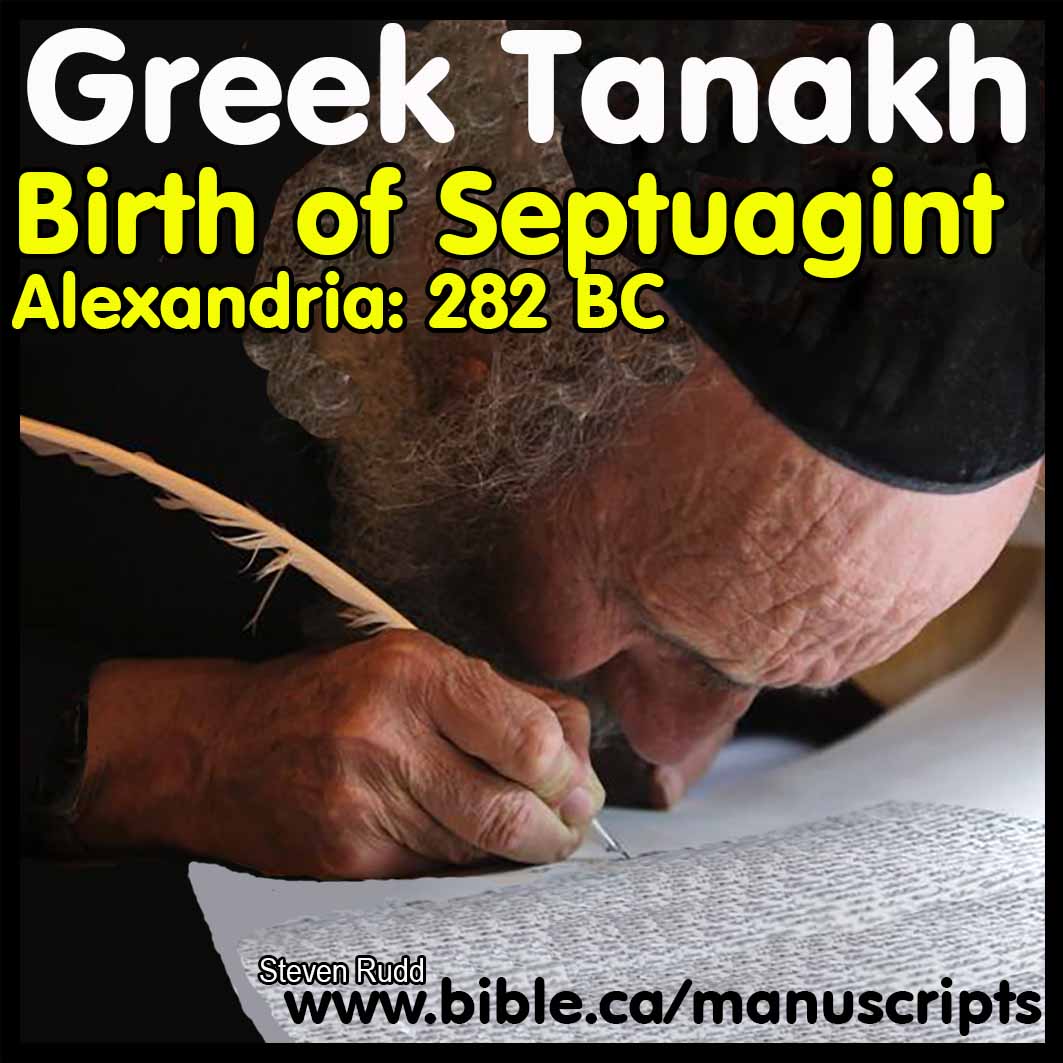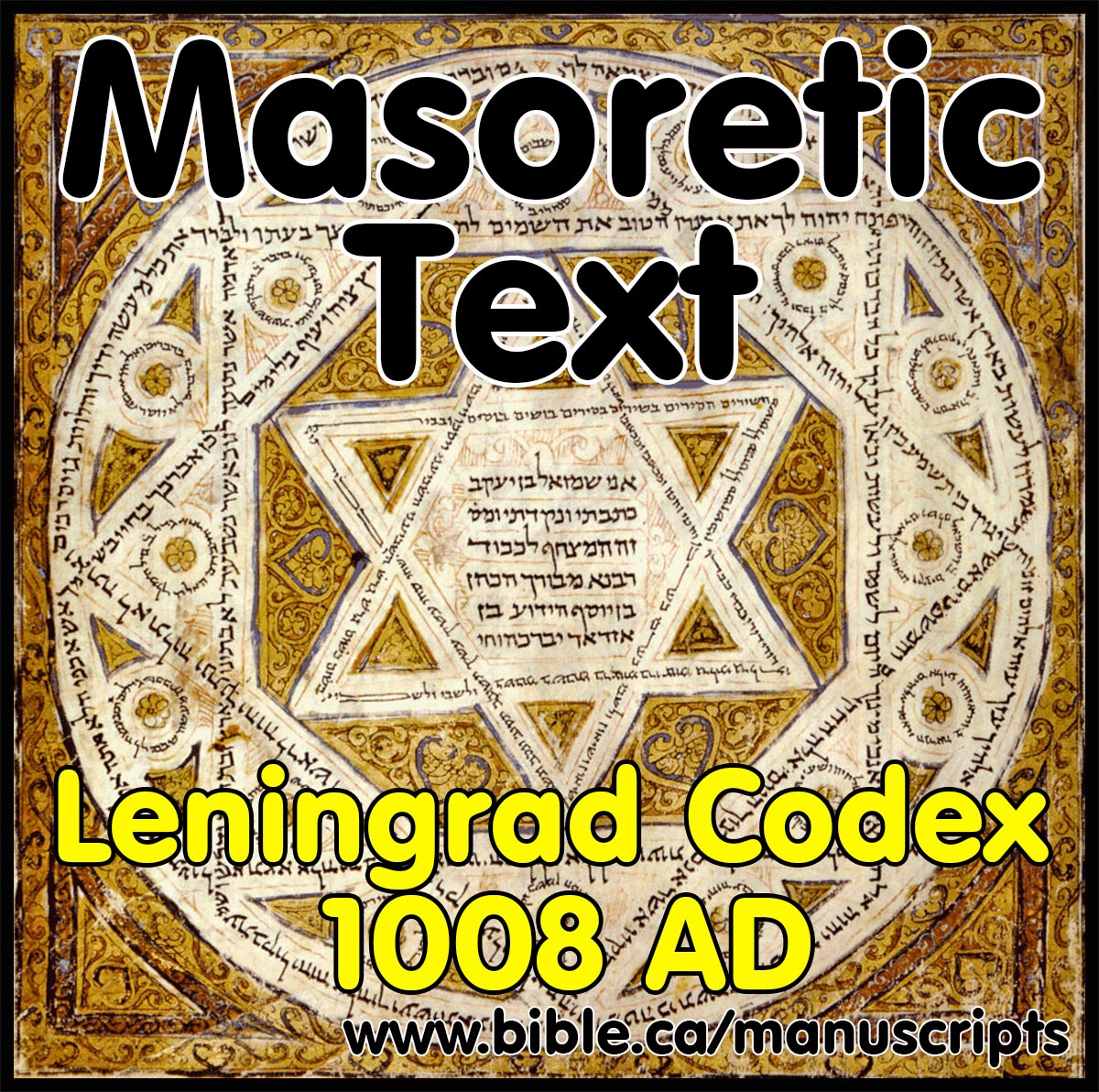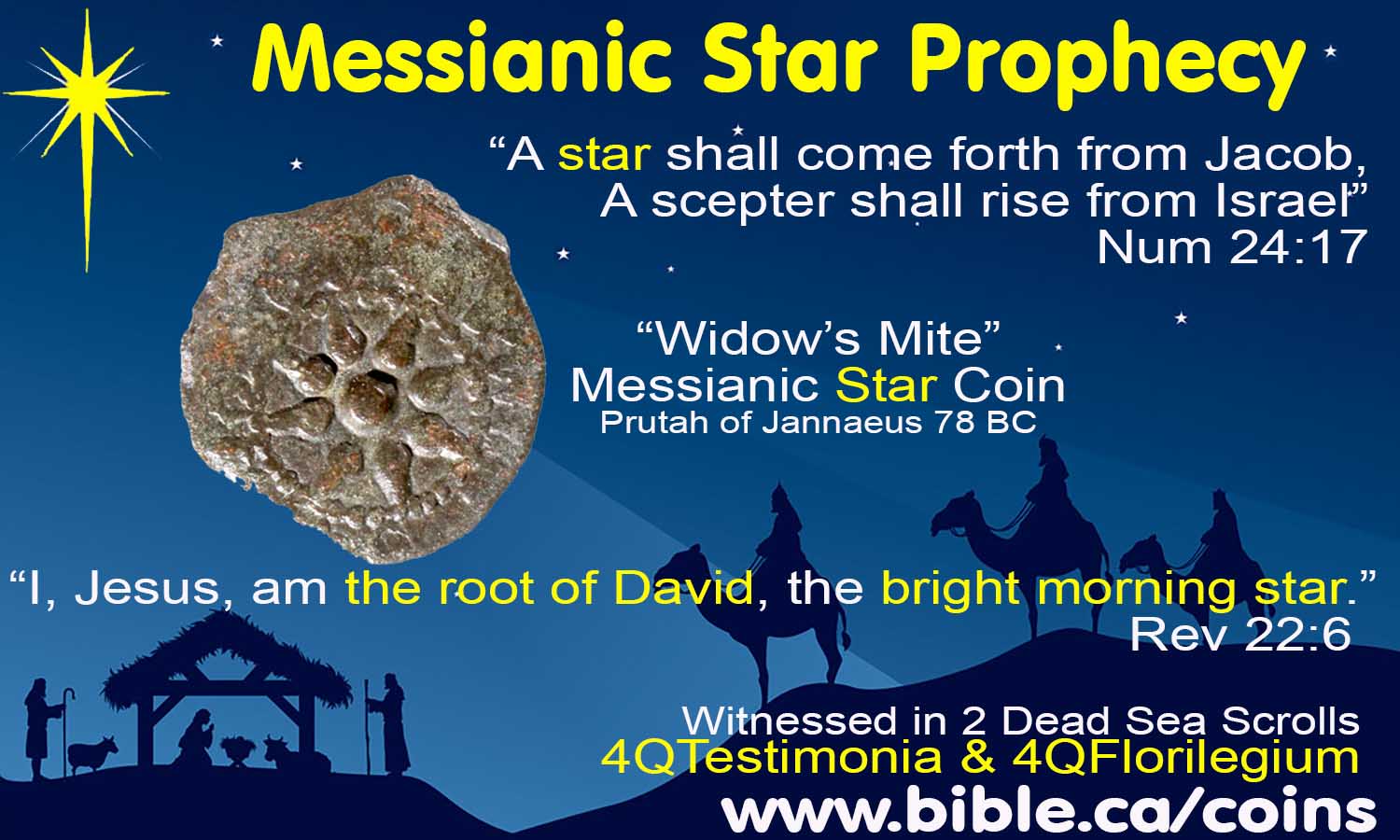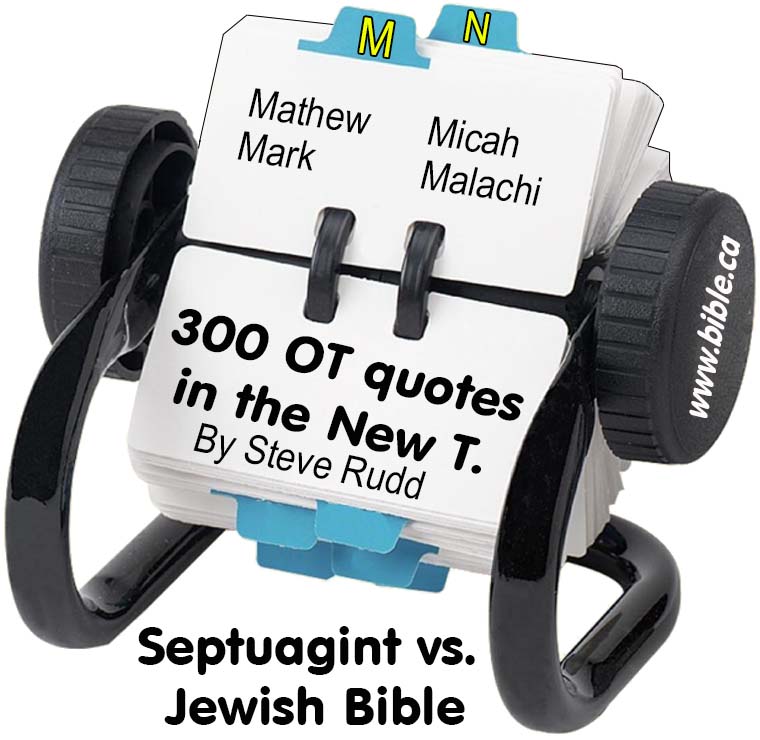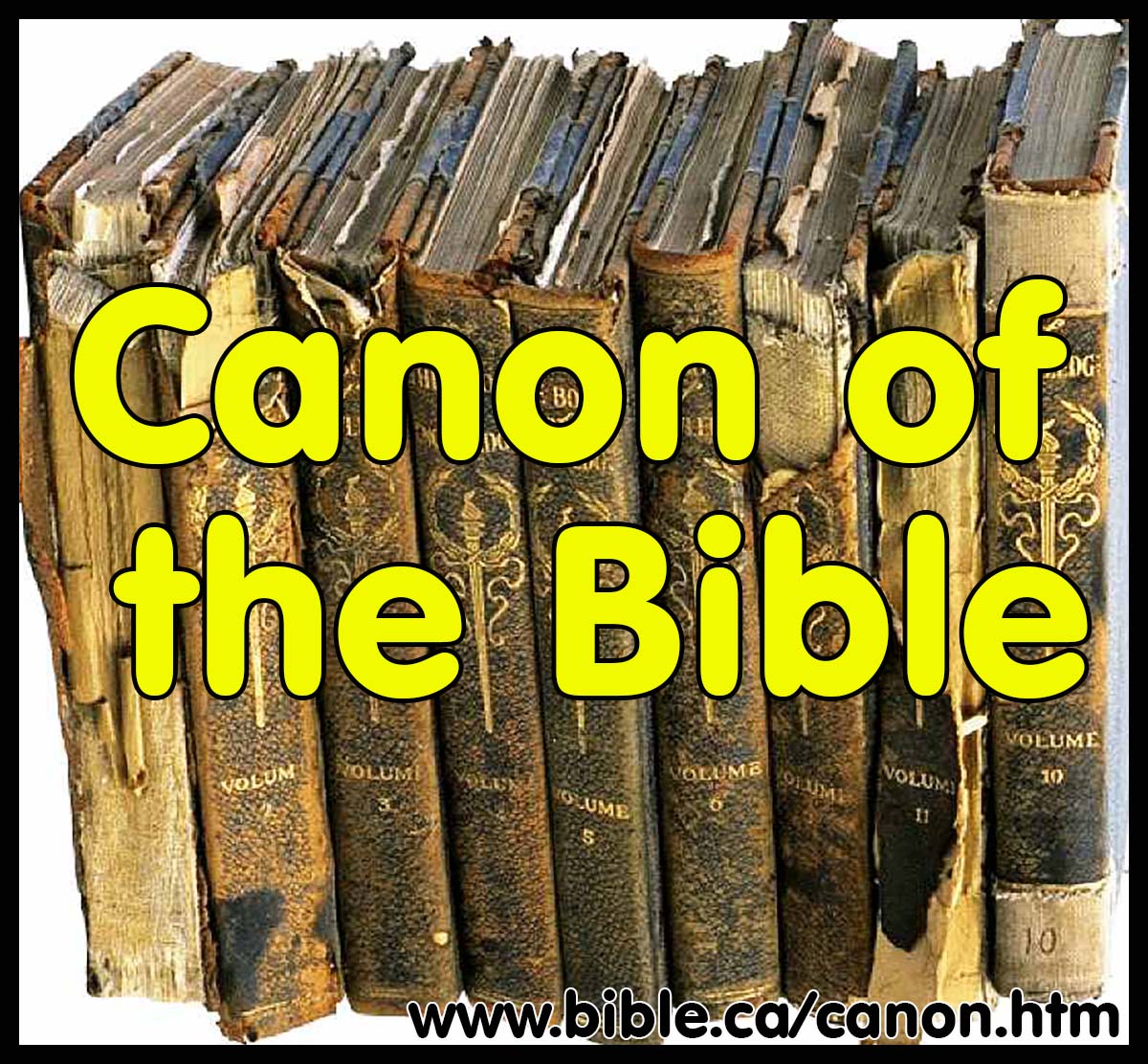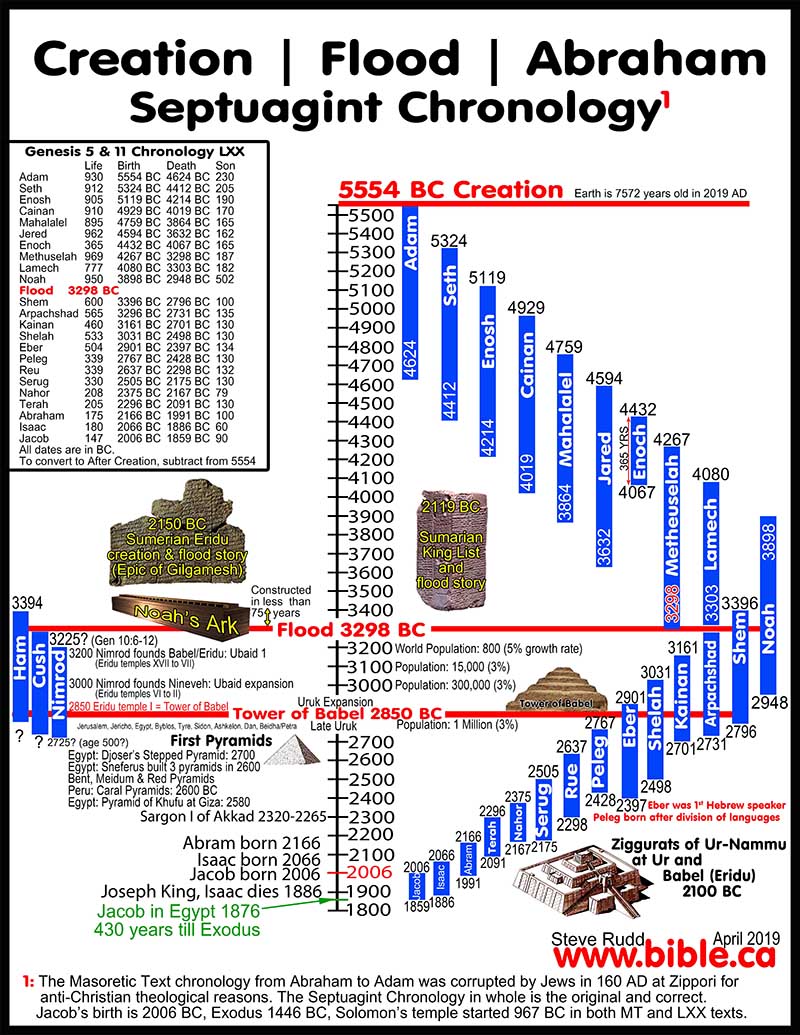|
Angels commanded to worship Jesus in Deut 32:43 Heb 1:8 was primarily quoting Deut 32:43 not Ps 97:7. Deut 32:43; Ps 97:7 and Heb 1:6 Single Textual Variants in the Bible "Scripture cannot be broken" (Jesus, John 10:35) "My word will accomplish what I desire and succeed in the purpose for which I sent it." (Isa 55:11) Steve Rudd November 2017 |
Dead Sea Scroll 4Q44 validates the Septuagint reading that Angels are to worship Jesus: Heb 1:8
What we learn from 4Q44 is that Heb 1:8 was primarily quoting Deut 32:43 not Ps 97:7.
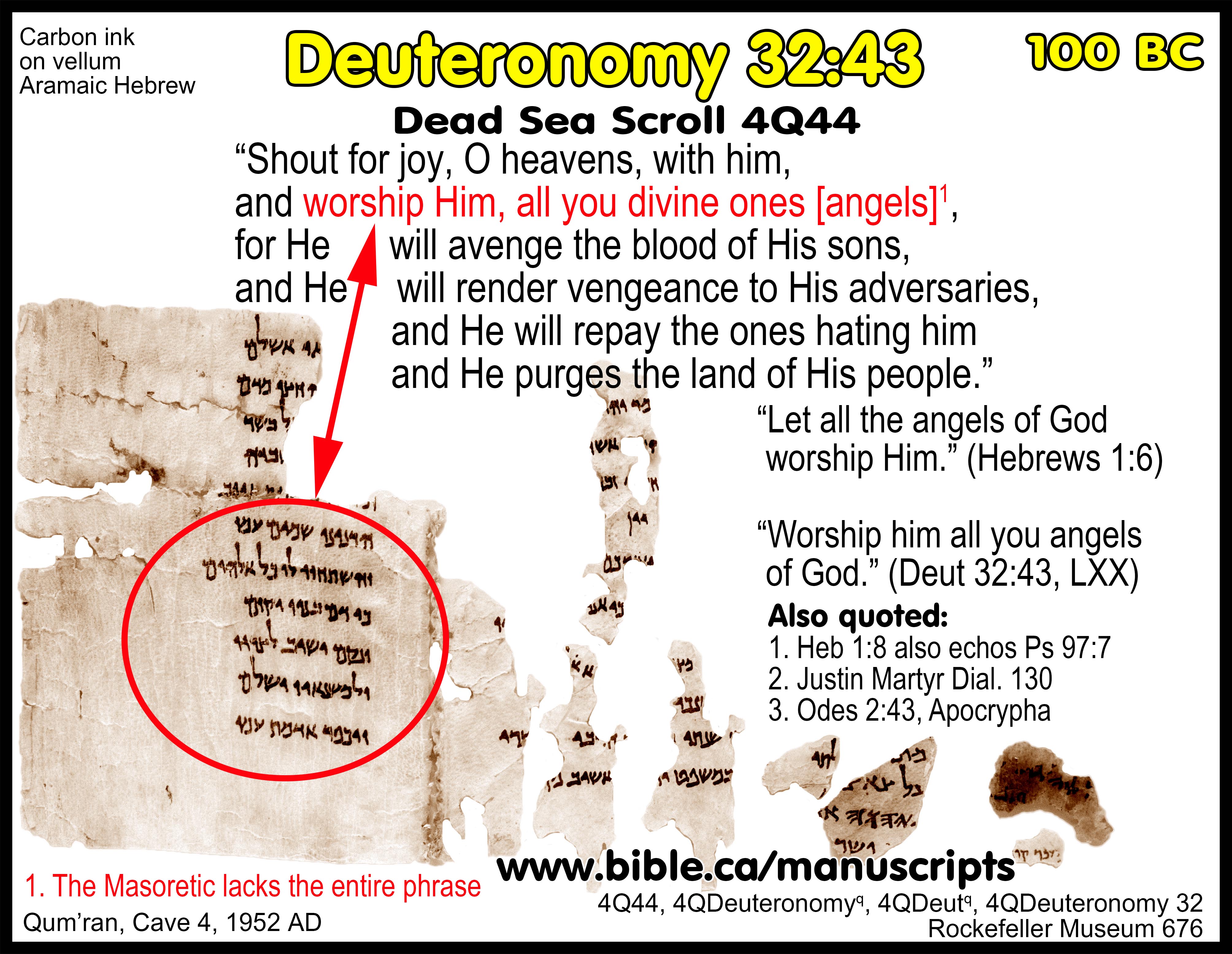
Angels commanded to worship Jesus Christ: Deut 32:43; Ps 97:7 and Heb 1:6
Textual Variants in the Bible
Bible textual variants analysed
Introduction:
Angels are commanded to worship Jesus Christ in Heb 1:6 and Christians mistakenly think the quote came from Ps 97:7 alone, unaware that Deut 32:43 is the primary source quote. The key phrase in Deut 32:43 is missing from the Masoretic text which most modern Bibles (NASB, KJV) follow. However the Septuagint (282 BC), Odes 2:43 Apocrypha (150 BC), Dead Sea Scroll 4Q44 (100 BC) and Justin Martyr (150 AD) all quote Deut 32:43 with the key phrase which is seen in Heb 1:6. We are certain that in 30 AD, the missing sentence in Deut 32:43 was in both the Hebrew Bible in possession of the Jerusalem High priest AND the Septuagint used in the thousands of synagogues the world over. Deut 32:43 is a messianic “last days prophecy” which uses the exactly same Hebrew phrase “in the last days” as found in Daniel 10:14. The Christians after 70 AD would clearly see the destruction of Jerusalem as a direct fulfillment of the passage which would irk the non-Christian Jews. “For I know that after my death you will act corruptly and turn from the way which I have commanded you; and evil will befall you [70 AD] in the latter days [cf. Dan 10:14], for you will do that which is evil in the sight of the Lord, provoking Him to anger with the work of your hands.”" (Deuteronomy 31:29) All this reinforces the last verse of the Song of Moses applied to the worshipping the Messiah. When the Holy Spirit assigned the worship of YHWH in Deut 32:43 to Jesus in Heb 1:6, it would greatly infuriate the Jews who did not convert to Christianity. Notice that Justin Martyr directly quotes Deut 32:43 in 150 AD to a Rabbinical Jew named Trypho and applies it directly to Jesus Christ. The most logical explanation as to why the phrase “let the angels worship” [the messiah] are lacking from the later Masoretic Text (1000 AD) in Deut 32:43 is that the Jews around the time of Justin Martyr removed the annoying reference to worshipping Christ from their Torah. In fact, the refuted Rabbi Trypho may have been so angered by Justin’s quoting of Deut 32:43 that he stormed off and changed the manuscript himself! All the literary and archeological sources contained the key phrase up to the time of Justin in 150 AD. The Septuagint therefore preserves the correct reading and the Masoretic reflects a theologically motivated alteration of the word of God to break the connection with the messianic last days prophecy of Moses and Jesus Christ the Messiah.
Discussion:
1. Men are to gives equal worship to Jesus as they do the Father.
a. We worship Jesus as the actual creator:
i. "He is the image of the invisible God, the firstborn of all creation. For by Him all things were created, both in the heavens and on earth, visible and invisible, whether thrones or dominions or rulers or authorities—all things have been created through Him and for Him. He is before all things, and in Him all things hold together. He is also head of the body, the church; and He is the beginning, the firstborn from the dead, so that He Himself will come to have first place in everything. For it was the Father’s good pleasure for all the fullness to dwell in Him," (Colossians 1:15–19)
ii. "In the beginning was the Word, and the Word was with God, and the Word was God. He was in the beginning with God. All things came into being through Him, and apart from Him nothing came into being that has come into being." (John 1:1–3)
iii. "He was in the world, and the world was made through Him, and the world did not know Him." (John 1:10)
iv. "God, after He spoke long ago to the fathers in the prophets in many portions and in many ways, in these last days has spoken to us in His Son, whom He appointed heir of all things, through whom also He made the world. And He is the radiance of His glory and the exact representation of His nature, and upholds all things by the word of His power. When He had made purification of sins, He sat down at the right hand of the Majesty on high, having become as much better than the angels, as He has inherited a more excellent name than they. For to which of the angels did He ever say, “You are My Son, Today I have begotten You”? And again, “I will be a Father to Him And He shall be a Son to Me”? And when He again brings the firstborn into the world, He says, “And let all the angels of God worship Him.” And of the angels He says, “Who makes His angels winds, And His ministers a flame of fire.” But of the Son He says, “Your throne, O God, is forever and ever, And the righteous scepter is the scepter of His kingdom. “You have loved righteousness and hated lawlessness; Therefore God, Your God, has anointed You With the oil of gladness above Your companions.” And, “You, Lord, in the beginning laid the foundation of the earth, And the heavens are the works of Your hands; They will perish, but You remain; And they all will become old like a garment, And like a mantle You will roll them up; Like a garment they will also be changed. But You are the same, And Your years will not come to an end.” But to which of the angels has He ever said, “Sit at My right hand, Until I make Your enemies A footstool for Your feet”?" (Hebrews 1:1–13)
b. The parallel use of Him to refer to two people in Rev 20:6 proves Rev 22:3 refers to both Jesus and the Father.
i. Both are co-recipients of worship Heb 1:6; Rev 5:11-14; Matt 14:33; 28:9; John 9:38; Rev 19:10
ii. Both are co-recipients of the kind of "service" that is only allowed to God: Matt 4:10; Rev 22:3f Greek--latreuo)
iii. Notice the identical structure in Rev 20:6 speaks of Christ or both, but not the Father alone. "but they will be priests of God and of Christ and will reign with Him for a thousand years." Rev 20:6
iv. Both Rev 20:6 and 22:3 have the Father and the Son referred to as the singular "him". This shows the unity between the two.
2. Angels worship Jesus: "And again, when He brings the firstborn into the world, He says, “And let all the angels of God worship Him.”" (Hebrews 1:6)
a. Most Christians believe this quote came from Ps 97:7 and have no idea it actually comes from Deut 32:43 because the entire phrase is missing from all modern Bibles, including the NASB, KJV, NIV and RSV.
b. The key phrase “let all the angels of God worship Him” is quoted almost exactly in four ancient sources: Dead Sea scroll 4Q44, Septuagint, Odes 2:43 Apocrypha LXX and Justin Martyr.
c. Because Ps 97:7 is close enough, the translators probably didn’t feel it was important to add the phrase in Deut 32:43 from the LXX.
d. Given the huge weight of archeological and literary evidence, the newer translations after the discovery of 4Q44 in 1947 AD in Cave 4 at Qumran, should have followed the key phrase now lacking in modern Bibles.
3. Variant Texts: Deut 32:43
a. "Delight, O heavens, with him and worship him, you sons of God. Delight, O nations, with his people and prevail with him, all you angels of God. For he will avenge the blood of his sons, and he will avenge and he will repay the enemies with vengeance, and he will repay those who hate, and the Lord will cleanse out the land of his people.’" (Deuteronomy 32:43, LXX)
b.
“Rejoice, O nations, with His people; For He will
avenge the blood of His servants, And will render vengeance on His adversaries,
And will atone for His land and His people.”" (Deut
32:43, MT)
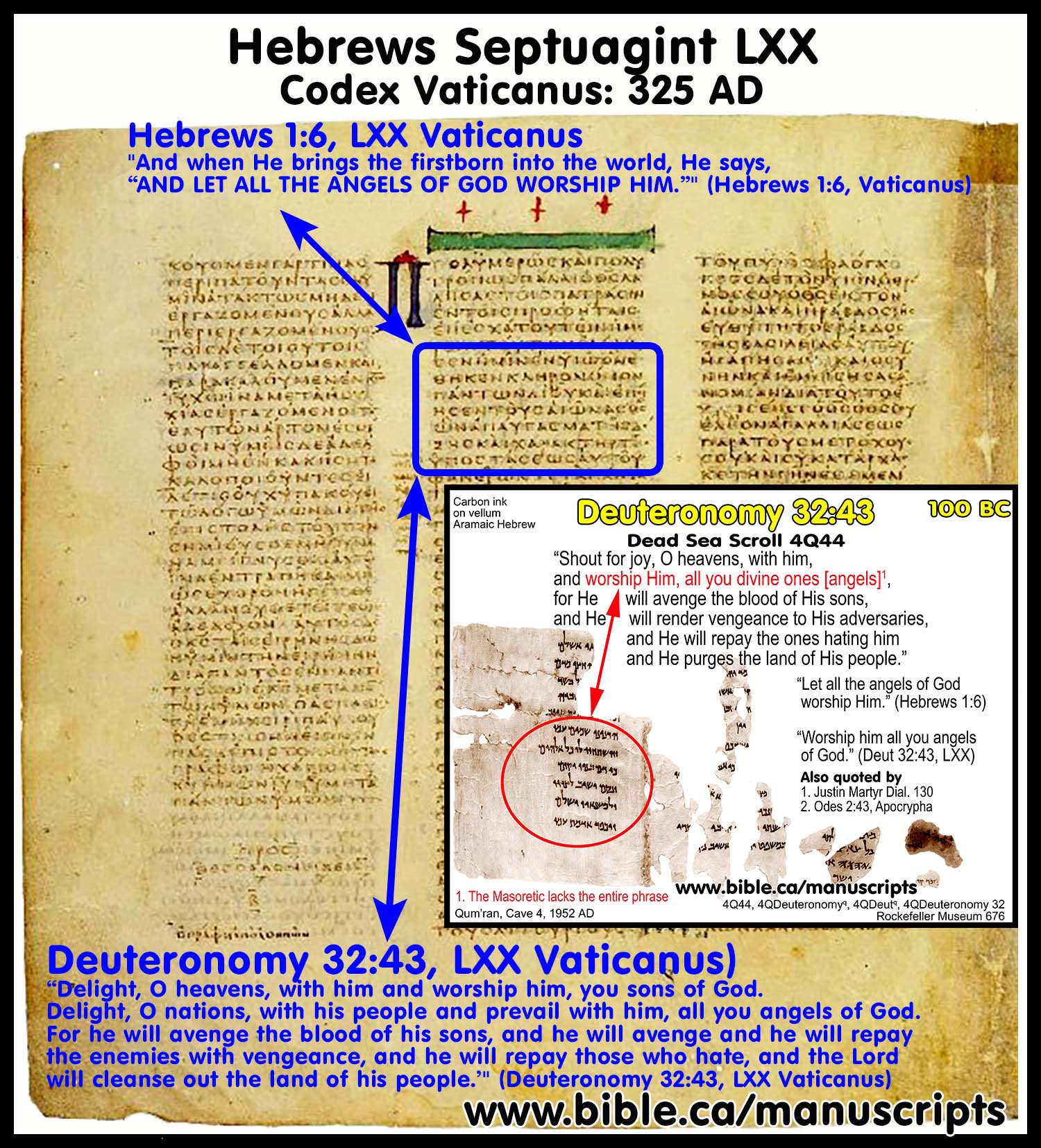
4. Archeological Literary Texts: Deut 32:43
a. Dead Sea Scroll 4Q44: “Shout for joy, O heavens, with him, and worship him, all you divine ones, for he will avenge the blood of his sons And he will render vengeance to his adversaries And he will recompense the ones hating him And he purges the land of his people.” (Deut 32:43, Dead Sea Scroll, 4Q44 [4QDeuteronomyq, 4QDeutq, 4QDeuteronomy32])
b. New Testament directly quotes Deut 32:43 but only echoes Ps 97:7: "And again, when He brings the firstborn into the world, He says, “And let all the angels of God worship Him.”" (Hebrews 1:6)
c. Justin Martyr: “‘Permit me, now, to quote some passages of Scripture [Deut 32:43] which I have not yet mentioned. They were spoken in parable by that faithful servant Moses, and begin thus: “Rejoice, O Heaven, with Him, and let all the angels of God adore Him.” Then I quoted the rest of the passage which follows: “Rejoice, O ye Gentiles, with His people; and let all the angels of God be strengthened in Him; for He avenges, and will avenge, the blood of His sons; and will render vengeance to His enemies, and will recompense them that hate Him; and the Lord will purge the land of His people.” By these words he indicates that we Gentiles rejoice with His people, that is, Abraham, Isaac, Jacob, the Prophets, and in fact every Jew who is pleasing to God, as we have already agreed.” (Justin Martyr, Dialogue 130, 180 AD)
d. Odes 2:43, Apocrypha LXX: "Rejoice, heavens, at once with him, and let all the angels of God worship him! Rejoice, Gentiles, with his people, and let all the sons of God prevail for him! For the blood of his sons he will avenge, and he will avenge and repay justice to the enemy. And to those who hate him, he will render justice, and the Lord will cleanse the land of his people." (Odes 2:43, Apocrypha quote of Deut 32:43, LXX)
5. Other important texts:
a. "And again, when He brings the firstborn into the world, He says, “And let all the angels of God worship Him.”" (Hebrews 1:6)
b. "Let all those be ashamed who serve graven images, Who boast themselves of idols; Worship Him, all you gods." (Psalm 97:7, MT)
c. "Let them be dishonored, all those who worship carved idols, those who pride themselves in their idols. Worship him, all his angels!" (Psalm 97:7 [96:7], LXX)
6. Evidence of two Hebrew manuscripts:
a. The variable between the LXX and 4Q44 indicate two different Hebrew texts.
b. Remember the Septuagint (LXX) was translated from a Hebrew text in 282 BC by Jewish scholars from Jerusalem. This creates a puzzle as to why the Masoretic text (1000 AD) stands alone in lacking the key phrase “let the angels worship Him”
c. “Lines of the LXX are absent from 4QDeut32 [4Q44] and represent a Greek translation of an alternate Hebrew text. This alternate Hebrew text appears to have some affinity with, though it is not identical to, the MT. Thus the standard text of the Greek Bible is a conflation of two translations, one representing the primitive text attested by 4QDeut32 (the non-italicized lines above) and one representing a text closer to the MT (the italicized lines).” (NICNT, G. L. Cockerill, Hebrews 1:6, 2012 AD)
d. “The occurrence of these lines in 4QDeutq suggests that a Hebrew source was known at Qumran. … Probably the best option, given the evidence, is that the author quoted Deut 32:43b from a Greek text not now known and to which 4QDeutq gives indirect support.” (NAC, D. L. Allen, Heb 1:6, 2010 AD)
e. “Skehan has published a fragment (4QDta) of the Song of Moses (Deut. 32:37–43) which contains Septuagintal readings found in no Hebrew source previously known.” (The Transmission-History of the Septuagint. W. W. Combs, Bibliotheca Sacra, 146, p257, 1989 AD)
7. The Jews living in Zippori around 160 AD removed the key phrase “And let all the angels of God worship Him” from their manuscript of Deut 32:46:
a. There is no way to know for certain, but this passage would have surely irked the Jews who refused to convert to Christ… the creator they and Angels must worship.
b. However, it is significant that the Masoretic text (1000 AD) stands alone in lacking the key phrase “let the angels worship Him”.
c. The most logical explanation is the Jews around the time of Justin Martyr removed the annoying reference to worshipping Christ from their Torah.
Conclusion:
1. There are many passages in both the Old and New Testament (Ps 97:7) that speak of angels worshipping Jesus.
2. Duet 32:43 needs to start being used by Christians to prove angels are to worship Jesus.
a. Jehovah’s witnesses and Christadelphians may be won over for Christ when they realize Jesus is CREATOR not creature.
b. Jesus cannot be BOTH creature and creator: "For they exchanged the truth of God for a lie, and worshiped and served the creature rather than the Creator, who is blessed forever. Amen." (Romans 1:25)
3. Jesus is Lord and every knee will bow to Him on Judgement day:
"Have this attitude in yourselves which was also in Christ Jesus, who, although He existed in the form of God, did not regard equality with God a thing to be possessed, but emptied Himself, taking the form of a bond-servant, and being made in the likeness of men. Being found in appearance as a man, He humbled Himself by becoming obedient to the point of death, even death on a cross. For this reason also, God highly exalted Him, and bestowed on Him the name which is above every name, so that at the name of Jesus every knee will bow, of those who are in heaven and on earth and under the earth, and that every tongue will confess that Jesus Christ is Lord, to the glory of God the Father." (Philippians 2:5–11)
In the final analysis, we can be certain that we possess the word of God!
This is what Jesus meant, when He said: "Scripture cannot be broken" (Jesus, John 10:35)
"My word will accomplish what I desire and succeed in the purpose for which I sent it." (Isa 55:11)
|
The Septuagint LXX “Scripture Cannot Be Broken” |
|||||
|
Start Here: Master Introduction and Index |
|||||
|
Six Bible Manuscripts |
|||||
|
1446 BC Sinai Text (ST) |
1050 BC Samuel’s Text (SNT) |
623 BC Samaritan (SP) |
458 BC Ezra’s Text (XIV) |
282 BC Septuagint (LXX) |
160 AD Masoretic (MT) |
|
Research Tools |
|||||
|
Steve Rudd, November 2017 AD: Contact the author for comments, input or corrections |
|||||
By Steve Rudd: November 2017: Contact the author for comments, input or corrections.
Go to: Main Bible Manuscripts Page
